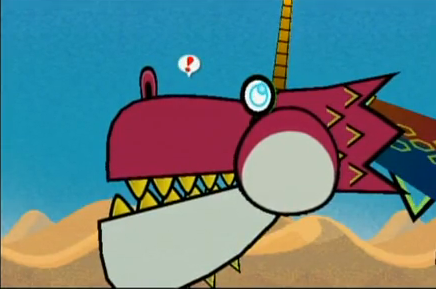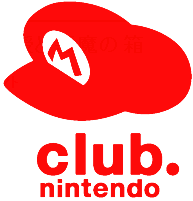Welcome to part III of my breakdown of the state of Nintendo for the year 2015. If you haven't already done so, check out part one here, which is all about software, and then go read part two at this link, which deals entirely with hardware. Also don't forget to check us out on Twitter (https://twitter.com/spritesndice), and on Facebook (https://www.facebook.com/SpritesAndDice). We love doing this, and community outreach is the only way we can continue, so thank you all for your support!

With the plugs out of the way, it is time to get right down to today's topic. What I'm going to get into today are the other programs Nintendo operates as part of their community support programs. This will focus primarily on their internet services, such as Club Nintendo. This piece will be a bit less specific, as I need to cover a pretty wide, and somewhat frustrating net.
I'm going to say something that will shock exactly no one: Nintendo sucks at the internet. This has been obvious from day one; of the four consoles in the 6th generation, the GameCube was the only one that didn't have a single first party title with officially supported internet connectivity. In fact, the only connectivity of any kind to speak of was in Mario Kart:Double Dash and Kirby's Air Ride, which had only LAN connectivity. While there were fan projects to get some kind of hacked together internet connections, Nintendo did nothing to officially support any kind of online platform. With the launch of the Wii and DS, Nintendo promised a lot more in this regard, even going so far as to announce a standardized online platform, and of course the online shop/Virtual Console digital storefronts.
Sadly, this also meant the beginning of one of Nintendo's least popular decisions ever, the Friend Code. For those of you unaware, Friend Codes were game specific identifying codes that you could give out to the people who you wanted to have them. It was a necessary step for any game you wanted to play with someone else for anything other than local multiplayer. While the idea may have made some sense from a 'family friendly' perspective, it meant those of us who wanted our friends to always be able to find out what game we were playing, and to only share one bit of information with them, were left feeling like Nintendo was intentionally trolling. Online play was something we were all hoping for, and the groundwork for how to do it right had already been laid by Sony and Microsoft. Yet here was Nintendo, actively working against the interests of gamers who wanted to go online. Now, from the point of view of protecting younger gamers, I sort of get it. But at the same time, it would mean that if a group of four friends wanted to play three different titles together, either all at once or separately, it would mean a lot of unnecessary back and forth to get everyone on the same page. I don't see what the point of saying "well, you can decide who you're playing with in each individual game" is. That level of granular control just seems so unnecessary. My feeling is, if I have someone I want to play with, I'll have them be a friend everywhere and if I don't want to play one particular game with them, I'll just say 'no thanks' when they ask. Why do I need to share a different code every time? And then imagine that conversation? "Hey Joe, yeah I got the new Pokémon, but to be honest I don't want you to have my friend code for it. Yeah, I know we play every other game together, but you and I are just not Poké-friends!"
There was a story (and I WISH I could find the original link) from a well known third party developer before the Wii U's launch, when they would have conference calls with Nintendo about the online infrastructure. At one point, the developer said they connected something to how it was done on PSN or XBL to explain their approach. The response from Nintendo was "You'll need to spell it out for us; none of us have ever used those services." Now, obviously this is just one side of a conversation from one developer. Could be completely made up, could be an exaggeration, we don't know. But assuming it's true (which I think is easier than assuming it isn't), the immediate response is "ARE. YOU. JOKING?!?!?!" When you're trailing behind, there's NO shame in at least looking at how the other guys are succeeding, even if for one reason or another you can't or won't copy some of their formula. But to not even look? That's arrogance, stupidity and an overabundance of ego. "We've never been wrong before, no matter how often people tell us they wish we'd be more like the other guys. So, instead of being like the other guys, let's do the opposite and totally ignore everything they've done."
This also bleeds into the problem of Nintendo's seeming inability to make an easy to use, seamless online shop experience. Everyone who used it remembers how slow the Wii Shop was; it even got parodied in Super Paper Mario when a boss "timed-out". It was unnecessarily complicated; you couldn't charge something direct to a credit card, you had to use the card to add funds, to then charge those same funds, all in the name of using "points" instead of dollars. Somehow, this was supposed to be better than Microsoft's convoluted Xbox Live Points (800 points was $10?) but now instead of dealing with dollars, Nintendo points basically made everything pennies. $1 = 100 points; so while that was easier to grasp, it still was unnecessary.

When your games make fun of your business practices,it's probably time to change things.
There's also the matter of shopping for content, or of re-downloading content you already own. Unlike most other digital platforms (Microsoft, Sony, Apple), Nintendo will tie your purchases to your actual hardware, rather than any online account you may own. This is clearly an attempt at anti-piracy, but there are WAY better ways to do this. For instance, if you own an Apple iOS device, you can only be signed in to one account at a time. When you sign in, you can not change accounts for 90 days, nor can you use content for a different account. So if you lose or break your device, its simple to get all your stuff back, but there's still anti-piracy measures in place. With Nintendo's policy, if you lose your device you have to call their support team with the serials numbers of both your old and new devices. One account said the whole ordeal took 24 hours; not a huge deal, but probably 23 hours more than it should have.
There's also the idea of not allowing you to download for free content you've already purchased on a separate platform, such as forcing users to pay twice if they want to download a game on both the Wii U and 3DS. To some extent it makes sense, and I can't only fault Nintendo since it's a common practice, but it does feel like they're just being unnecessarily cheap at times.

Then there's the matter of Club Nintendo, which is shutting down soon in the US. Let's ignore the fact that US gamers didn't GET Club Nintendo until several years after our Japanese and European counterparts. Let's also ignore the fact that Japan and Europe consistently got better prizes than the US did. I should note that I'm not ignoring these things because they aren't important, they are (I'm ignoring them because frankly, what good am I as a fanboy if I don't cut them at least a little slack that's fully undeserved?). No, what REALLY bugs me about how this is all being handled is this scenario:
-Nintendo announces it is shutting down Club Nintendo, but to replace it with something better -Nintendo announces any games released after a certain point will not qualify for Club Nintendo points. -Nintendo announces that any unused points will NOT transfer over to the new program -Nintendo puts up one of the best reward lineups it's had in YEARS
Okay, pretty good so far. Except what about all those games I want to buy that will maybe never earn points into a Nintendo reward program? Like Majora's Mask 3D. Or maybe Project S.T.E.AM.? What's the incentive to buy games now if I don't know that I'll get points for them? This is an outstanding example of the Osborne effect; when a company doesn't announce something new for fear it'll cannibalize whats already out there. A friend of mine asked "So what, they took away the carrot and now you're going to retaliate by not buying anything from them?" No, my feeling is, why buy anything now when I know the carrot is coming back? Meanwhile, who knows what might be on sale between now and when the next program launches. Or how about any impulse purchases I might have made, those sales might easily be lost. My point is, Nintendo could (and really SHOULD) have told us "Any games bought after this date will count towards the new program, your account will automatically transfer over", etc. The fact that they haven't said that makes me very worried that it won't be true. So why would I buy games now when, if I wait a few months, I might be able to get a reward for buying games I wanted to get anyway? This really nails Nintendo's problems with community outreach; there's no communication and so it comes off that they either don't have the answers, or we won't like them.
So, to finally bring this piece together, what is my feeling on Nintendo's community outreach and online services? I think Nintendo still is terrible at the internet, terrible at communal outreach and terrible at reacting to any trends. I get why all of those things are tru: for all it's innovation, the executive team of this company is still very old school and slow to act. However, with information all around the world spreading faster, there's no excuse for them to not follow up on what the other guys are doing, and listen to the feedback of their customers. This is the area where Nintendo will really never catch up, but damn I'd love it if they'd at least try. Nintendo, for better or worse, lives in its own bubble, and here is where we start to see the problems with that. The changes to Club Nintendo might be leading to something better, but it shows perhaps why the Wii U and its modern games have been having more trouble in the North America market in recent years.
Capping off my month-long rant, come back next week for my final wrap up on Nintendo of 2015, and why I think that there may be trouble on the horizon. As much as I love Nintendo, issues like these are proof as to why the company needs to adapt some more standard business practices soon to stay in the race.